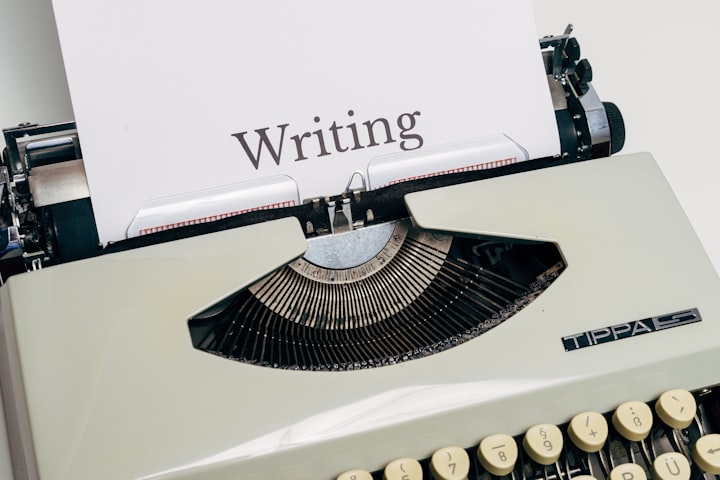Writing Dialogue
This is not a class or me telling how, it is my experience while learning

Just my own experience.
I’ve heard that talking to oneself was once considered a sign that you need taking away and putting in a straitjacket. You’ve only to stand on a street corner and everybody who passes you will appear as someone talking to themselves. Of course, this is not true, they are simply talking into a cell phone. But did you ever listen in? I can’t count the number of times I’ve walked alongside a person talking on a cell phone, not to be rude, or intrude on their conversation, but listening to their speech.
I write as an old man, having had no tuition, not even a book. Had I read more as a child, I’d be a more complete writer today, though I don’t know if I’d be a better writer.
Dialogue is conversation and nothing more. Characters talk to each other, so shouldn’t they sound like real people? I like this idea because then all I’d have to do is transcribe a person’s conversation, and there’s my real person on the page. I’m done.
I’ve learned it’s not that simple — but it’s not that complicated to write dialogue.
Real conversation may sound like this:
"Er, Jim, like, have you heard the latest thing, like, on, ya know, what’sis name, you know, er, I mean the guy, you know, who’s like in the news all the time — "
In direct transcription, I can’t accurately indicate where vowels drag, consonants double and so on. Written this way, I don't get to describe the melody of the voice, watch body language, and not suffer all the hesitations and indirectness and irrelevancies than when I read write transcript.
The writer cannot reproduce real speech. End of story!
Instead, I learned what any good writer learns. I can approximate real speech, and in doing so learn that dialogue should be quicker and more direct than real speech.
There is no need for dialogue unless there’s a point to be conveyed. It is about finding the right balance between realism and economy of speech.
To make realistic dialogue--to create a distinctive level of diction, allow some characters to speak in fragments, others in complete sentences; some in slang, some in professional jargon, others in standard English. Dialogue should convey a sense of spontaneity but eliminate the repetitiveness of real talk.
When I began to work out that most important part of dialogue, I found it takes place in body language and in the exposition between the lines. Good dramatic dialogue is multi-layered, so that in addition to body language and direct meaning, there’s another parallel meaning.
Every sentence spoken in a piece of fiction ought to convey some kind of information. Dialogue brings us closer to the characters and their conflicts. When I need history, philosophy, biology, and most other sorts of information, I put them in the narrative, unless my character happens to be a bloody historian. Then I’m screwed!
Getting it right.
Another lesson learned. When characters in a scene begin talking, after lengthy discourse, I lost track of which character was talking, where he was, and what the hell he was doing. This usually occurred because I became aware of repeats in dialogue attribution, so compensated by cutting away tags — resulting in lots of “fluffy floater” quotes.
I started to do away with adverbial modifiers for attributions, such as: he said hotly, she said coolly, anyway, you get my drift. Used in moderation I guess these aren’t so bad, (although many will argue that a stronger verb choice is better than the verb/adverb construction) but when we start seeing several per page their effect becomes both diluted and will annoy the hell out of a good writer. More importantly, while describing too much how conversation is being spoken — it becomes more telling in nature than showing.
When every attribution I wrote was, he snarled, she snapped, he interjected, she declared, he asserted, she affirmed, he announced, well, I drove myself nuts!
I kept one little rule in mind: There’s nothing wrong with the word ‘said.’
It’s okay— really.
I appreciate you coming by. This is not a lesson on dialogue, hell knows I'm not a teacher, it is a sample of the experiences when writing and from which came the way I like to write dialogue.
About the Creator
harry hogg
My life began beneath a shrub on a roundabout in Gants Hill, Essex, U.K. (No, I’m not Moses!) I was found by a young couple leaving the Odeon cinema having spent their evening watching a Spencer Tracy movie.
The rest, as they say, is history






Comments (1)
❤️😉📝❗